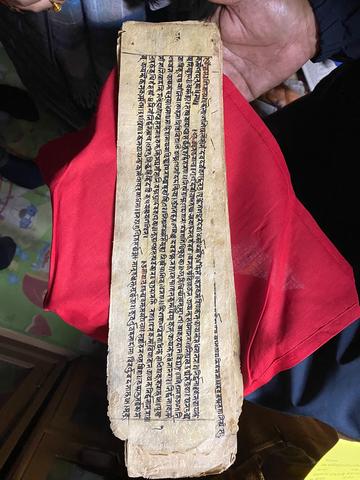A new project led by Dr Bjarne Wernicke-Olesen, in collaboration with Dr Lucian Wong (Oxford Centre for Hindu Studies), is breaking new ground at the intersection of traditional philology and cutting-edge AI. The project, Creating AI Models for Handwriting and Text Recognition in South Asian Manuscripts, has received one of the largest awards in the latest round of Digital Scholarship (DiSc) Research Development grants at Oxford (£42,250).
Firmly embedded in the Faculty of Theology and Religion’s longstanding strengths in textual analysis and the study of religious traditions, the project combines the study of Hindu source texts with data science and AI. Its aim is to develop Devanāgarī Optical Character Recognition (OCR) capabilities using Transkribus AI software to convert ancient Sanskrit manuscripts into machine-readable, searchable e-texts—a potentially transformative development for scholars of religion, language, and cultural history.

Manuscripts included in the project
Working with a team of Nepalese experts based at the OCHS Kathmandu Office, and under the digital curatorship of Tom Derrick in Oxford, the team is training the AI models using palm-leaf manuscripts from the Śākta and Vaiṣṇava traditions. These materials, many of which are previously unstudied, are hosted in the newly launched OCHS Indic Manuscript Database—an open-access platform developed by Dr Ulrik Lyngs and Dr Wernicke-Olesen.
If successful, this high-risk, high-reward project could revolutionise access to primary sources in South Asian studies and place the Faculty of Theology and Religion at the forefront of Digital Humanities in the study of religion.